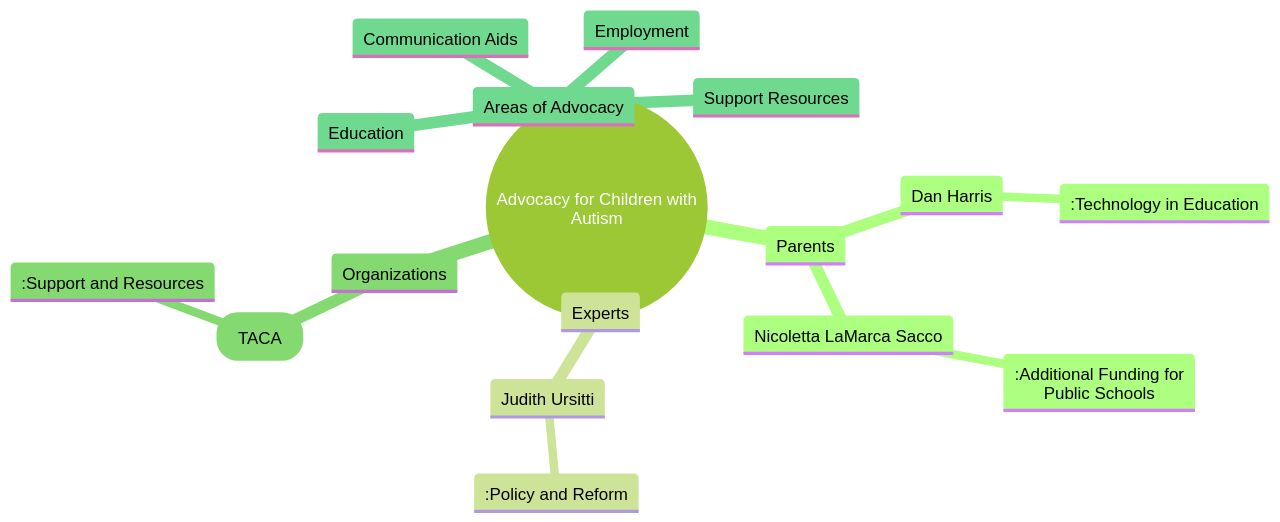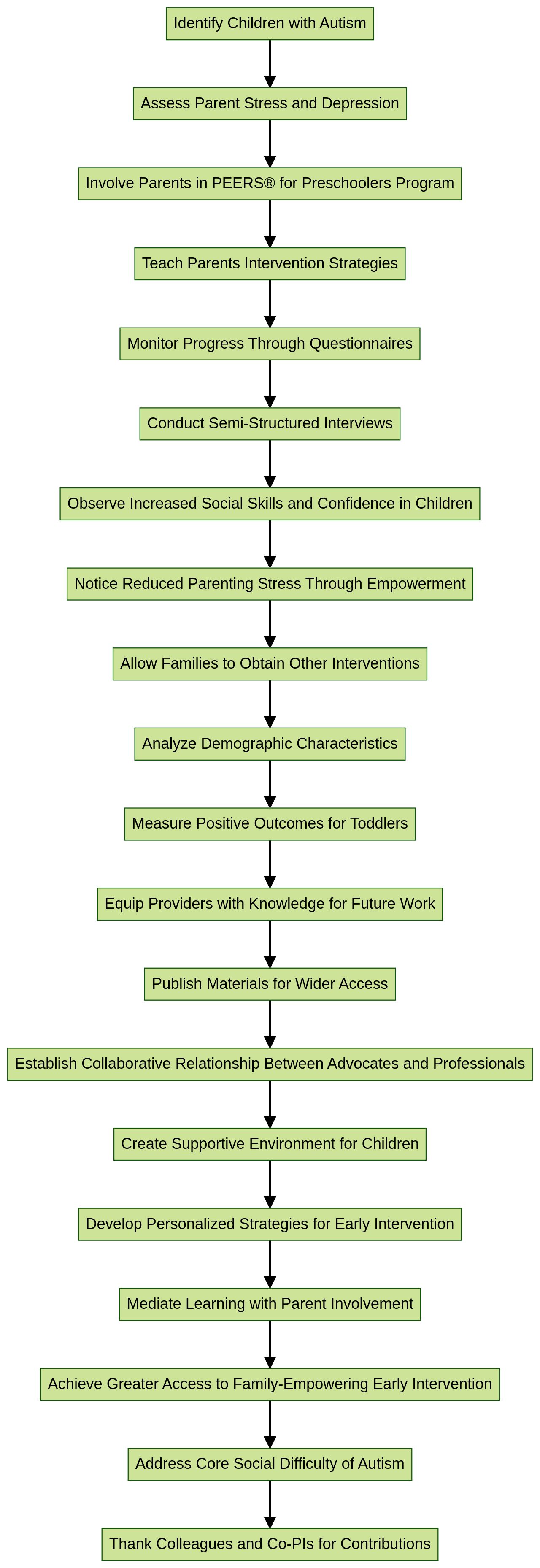Introduction
Understanding Autism Spectrum Disorders
Autism Spectrum Disorder (ASD) is a complex and diverse condition that affects individuals in unique ways. The challenges and strengths of autism manifest differently in each person, making early diagnosis and intervention crucial.
In this article, we will explore the core characteristics of autism, debunk misconceptions, and delve into the latest research on genetics and environmental factors. We will also highlight the importance of a comprehensive assessment and the role of parent advocates in supporting children with autism. By understanding the intricacies of autism and staying informed, parent advocates can play a transformative role in ensuring the well-being and success of their children.
Understanding Autism Spectrum Disorders
Autism Spectrum Disorder (ASD) is not merely a single condition but a diverse constellation of challenges and strengths that manifest uniquely in each individual. The American Psychiatric Association's DSM-5 outlines the necessity for core characteristics of autism to be evident in early childhood.
Yet, the full expression of symptoms might only become apparent when social pressures surpass an individual's coping abilities. It's also possible for coping mechanisms and support to obscure these challenges.
Typically, signs of autism emerge by age 3, prompting the need for early diagnosis and intervention by a multidisciplinary team of specialists, which might include neurologists, psychologists, and speech therapists, among others. Misconceptions about autism's origins persist, yet it is clear that neither vaccines, parenting styles, nor nutrition are to blame.
Genetics play a substantial role, with ongoing research into specific genetic markers that may predispose individuals to autism. Moreover, environmental factors, when combined with genetic predispositions, may influence the development and severity of ASD.
Recent research has cast light on the significant roles of neurotransmitters like dopamine and serotonin in neural development and their potential links to autism when disrupted. Groundbreaking studies are now exploring these connections further, aiming to pave the way for innovative treatments. With the advent of techniques like single-cell assays, scientists like Geschwind are delving deeper into the molecular changes in the autistic brain, hoping to unravel the complexity of this condition at the cellular level. For families navigating ASD, a comprehensive assessment is key to crafting a personalized support plan, with a collaborative approach between therapists and families being crucial. Stories from families experiencing positive changes offer hope and underscore the importance of partnership in the journey of managing autism. With only a fraction of individuals diagnosed with ASD before the age of 5 able to live independently as adults, the push for early diagnosis and intervention becomes all the more vital.
The Role of Parent Advocates
Advocacy for children with autism is a journey filled with both triumphs and challenges. For instance, Dan Harris, a father from Peterborough, has been a beacon of hope, advocating for the use of technology to empower his non-verbal autistic son.
By securing funding for picture boards in his community, Harris has highlighted the transformative power of communication aids that can unlock a world of expression for those who are non-speaking. His efforts underscore the importance of technology in providing a voice to the voiceless and reinforcing every child's right to an education tailored to their needs.
In the same vein, Nicoletta LaMarca Sacco's advocacy reflects a deep understanding of the complexities faced by autistic individuals and their families. As a former teacher and disability activist, she calls for additional funding in public schools to bolster academic support for all students, emphasizing the need for equality in education.
Her insights draw attention to the often-overlooked struggles of adults with autism, who may face employment challenges, depression, and other issues that impact their quality of life. Moreover, recent discussions among experts, including Judith Ursitti, have shed light on the evolving landscape of autism advocacy.
These conversations are not just theoretical; they are deeply personal for parents and advocates who envision a world where every individual with autism receives the comprehensive care they deserve. Such dialogues are crucial in shaping a future where severe challenges are met with innovative and compassionate strategies. The Autism Community in Action (TACA) echoes this sentiment, offering resources to guide families through the maze of educational systems and Individual Education Plans (IEPs). Their work emphasizes the need for reliable information and support, ensuring that parents are well-equipped to advocate for their children's unique educational needs. As we look forward, it is clear that the collective effort of parents, activists, and professionals is pivotal in championing the rights and potentials of children with autism.

Strategies for Parent Advocates
To champion the needs of children with autism effectively, it's crucial for parent advocates to delve into the intricacies of the condition. Understanding autism's hallmark features is just the start. Delving into the latest research and therapeutic approaches is pivotal, as emphasized by Dr. Hannah Schertz, whose work at Indiana University Bloomington focuses on early interventions mediated by parents to enhance social communication in toddlers at risk for autism.
These interventions are vital as they target the core challenge of autism—social communication—at an early stage where intervention can be most impactful. Dr. Schertz's research demonstrates the significance of parental involvement in early intervention, which can lay a strong foundation for a child's future communication skills. Moreover, according to a comprehensive meta-analysis by Micheal Sandbank, PhD, many interventions recommended for autism are based on low-quality studies.
This underscores the importance for parent advocates to discern evidence-based practices from those that may not be effective or could even cause harm. The Autism Community in Action (TACA) echoes this sentiment, advising parents to consult with medical professionals to tailor interventions to their child's unique needs. A combination of medical treatment and targeted therapy, assessed and monitored by professionals like Board Certified Behavior Analysts (BCBAs), can lead to improved outcomes in behavior, communication, and socialization.
The journey with autism is unique for every child and every day, as the adage goes: if you've met one child with autism, you've met one child with autism. This perspective, coupled with a steadfast hope for progress, can empower parents as they navigate the complex landscape of autism interventions. Parent advocates can play a transformative role by staying informed, advocating for quality research, and ensuring that interventions are personalized and evidence-based.

Build a Support Network
Building a robust support network is essential for parent advocates navigating the complexities of autism. By connecting with other parents facing similar journeys, engaging with specialized support groups, and tapping into the wealth of knowledge available in online communities, parents can create a crucial support system. This network serves as a vital resource for exchanging experiences, gaining valuable insights, and obtaining the emotional backing needed during challenging times.
It empowers parents with collective wisdom and strategies that have proven effective in managing the unique needs of children on the autism spectrum. The significance of such networks is underscored by the experiences of parents in the UK, who collaborated with local councils to establish supported-living homes for their autistic children, addressing the dire need for suitable residential accommodations. Similarly, training developed and led by autistic adults emphasizes the importance of focusing on the positive aspects of autism, which can be instrumental in enhancing support services.
Jan Stewart, a respected mental health and neurodiversity advocate, reminds us that persistence in seeking the right help is crucial, and reassures that "there is help, hope, and you are not alone." This sentiment echoes the experiences of ten autistic mothers who, despite facing systemic challenges, persevered to secure the support needed for their children in mainstream education. Their stories highlight the power of advocacy and the impact of a united front in fostering change and obtaining necessary resources.

Collaborate with Professionals
For parent advocates, establishing a collaborative relationship with professionals such as doctors, therapists, and educators is critical to crafting a supportive environment for children, particularly those with autism. These alliances are pivotal in developing personalized strategies that cater to the unique social communication challenges faced by children on the autism spectrum.
Dr. Hannah Schertz's research highlights the significance of early intervention in social communication for toddlers with autism, emphasizing the role of parents in mediating learning and the positive outcomes associated with such involvement. Studies have shown that engaging parents early on can lead to better language skills as the child grows.
Moreover, the National Center for Systemic Improvement (NCSI) offers resources that advocate for mutual competence, recognizing the expertise of both professionals and families in the educational process. This approach is essential for ensuring that interventions are not only effective but also respectful of each child's individual needs. By working together, parent advocates and professionals ensure that each child has access to early, tailored intervention, ultimately leading to a more empowering experience for families navigating autism.

Conclusion
In conclusion, parent advocates play a crucial role in supporting children with Autism Spectrum Disorder (ASD). Early diagnosis and intervention are vital, as signs of autism typically emerge by age 3.
Genetics and environmental factors contribute to ASD, and ongoing research aims to uncover innovative treatments. Advocacy efforts empower children with autism by advocating for technology and additional funding in schools.
Collaboration between parents, activists, professionals, and organizations like TACA is pivotal for comprehensive care. To be effective advocates, parents must stay informed about the latest research and interventions.
Parental involvement in early interventions lays a strong foundation for communication skills. Consulting medical professionals ensures personalized approaches.
Building a support network is essential for parent advocates. Connecting with other parents and engaging in specialized support groups provides valuable insights. Collaborating with professionals enables the development of personalized strategies. In conclusion, parent advocates have the power to make a positive impact on their children's lives by staying informed, building support networks, and collaborating with professionals. With dedication and support, they can ensure their children receive the necessary resources to thrive.




